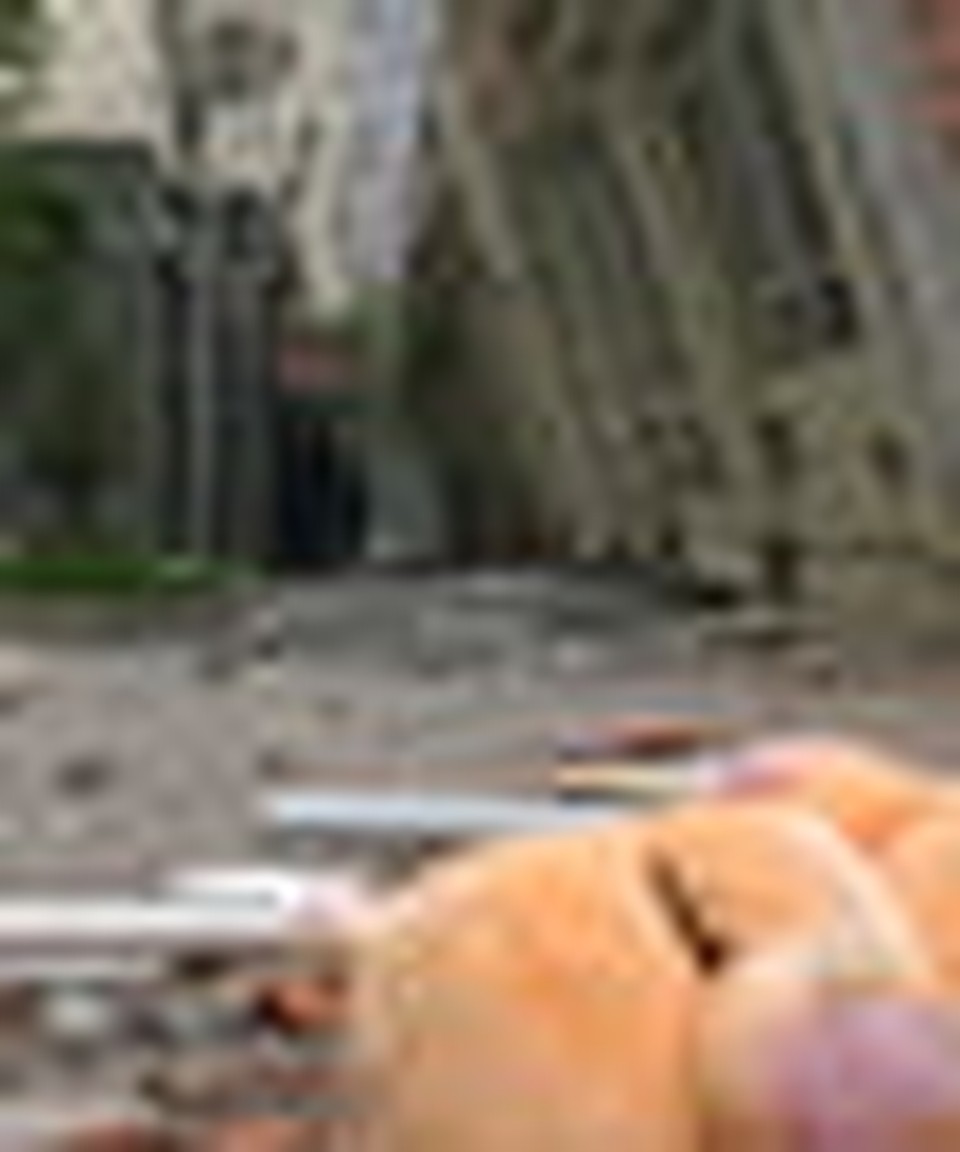How Could God Let This Happen?

The terrible details of Japan’s tsunami can be overwhelming. The Prime Minister of Japan described this tragedy as the worst event to happen to Japan since the second world war. As new reports about rising death tolls and possible nuclear dangers continue to develop, the faces of different Japanese students I taught over the years flash before my mind’s eye. I can’t help but wonder about their safety. But the tragedy there is so great that even those with no personal connection to Japan are still affected.
When something this catastrophic happens, questions naturally arise for people of faith. How could God let this happen? Why did God let this happen? How can any thinking person call God “good” when something like this happens?
All those questions are legitimate, and for me, still beyond my ability to answer with an emotionally satisfactory reply. The faith-crisis questions cause me to remember my own faith-crisis after the Indonesian Tsunami of 2004.
That night I rocked my infant daughter to sleep as I did every night, singing “God is so good.” Yet something was very different this time. Only one day after celebrating Christmas, I literally choked out words about God’s goodness. My mind raced, asking over and over again, “How can the God who allowed this be ‘good’?” I had no answer. Thankfully, that night’s despondency did not last indefinitely. A few days later, another question from that tragedy was answered, and it is being answered now as well.
WHERE IS GOD IN THE MIDST OF THIS TRAGEDY?
I was heartsick for the Indonesian people in 2004 and likewise now for those in Japan. Yet something happened in 2004 that changed the way I understood how God worked in the world.
I truly beg the reader’s pardon if any of what follows seems trite; I again confess that suffering of this magnitude boggles the mind and challenges faith. Yet I want to share a small insight I gained in 2004 and its practical applications for 2011.
The Sunday after the Indonesian tsunami, I arrived at church still emotionally stinging from what seemed an unanswerable challenge to God’s goodness. Had He simply abandoned the 200,000-plus people that died? Were they somehow not worthy of His love? So many questions confronted me that I literally felt depressed. My faith was not up to this challenge.
Then something happened. That morning, before the worship service started, one of our pastors got up to make an announcement about the people of the several nations who were affected by the tsunami. Our church was already partnering with organizations overseas, providing blankets, tents, food, and counseling. Like a flash of lightning, the insight struck me that began to resolve my faith-crisis: here was the body of Christ in action. God had not abandoned these people, instead he empowered his Church to do His work.
For some readers, this insight may be obvious, but for me, it changed the way I look at the Church. The Church was not just an organization, it was also an embodiment of God’s grace in the midst of suffering. Remember, human beings were made in the image of God, and Paul called believers “the body of Christ.” So the 2004 tragedy became an opportunity for that Christ-body to reflect God’s image in powerful ways. This year’s tragedy in Japan provides the same opportunities.
THE CHURCH IS GOD’S PRESENCE IN THE MIDST OF TRAGEDY
Readers may object to my assessment. Am I arguing that God caused the quake and tsunami to happen so that ministry opportunities might abound? Do I believe that God purposefully caused the deaths of thousands of Japanese so that a fortunate few might be evangelized?
Those concepts are shocking, and I answer them the same way Paul did when he was asked the shocking question “should we sin all the more so that grace may abound?” His answer and mine: “by no means.”
I don’t claim to know God’s purposes in allowing the quake to happen a few days ago, but I do know His purpose for the body of Christ - His representatives in the world today. He expects us to minister to a hurting world the same way Christ ministered to a hurting world: with healing acts (miraculous or medical), words of compassion, tears of grief, and words of truth.
Because of globalization, we live in an increasingly connected world - so connected that within moments of the event, we know about tragedies that occur on the other side of the globe. That global awareness causes us to ask difficult questions about our faith, but it also provides us opportunities for service.
These insights are nothing new, but they are relevant. Whenever tragedy strikes and you have the opportunity to minister to hurting people (locally or globally), please see this as an opportunity to work with other believers and show people that God is still at work in this world of grief. God has neither abandoned us nor is He watching from a distance. He is in our midst, and after the tragedy in Japan this week, He once again calls us to serve. Pray for those suffering in Japan. Pray also for those who are ministering to the suffering. And support them in whatever way you are able.
On a final note, readers who want to think through the issue of Christian faith and suffering even further might enjoy this Napkin Theology video...
Stanley J. Ward serves as the Biblical Worldview Drector at The Brook Hill School (www.brookhill.org) and frequently speaks at conferences (www.stanleyjward.com). He is also a PhD candidate and napkin theologian (www.napkinvideo.com).
Publication date: March 15, 2011
Please join us on Facebook in prayer for Japan.
Visit our Crosswalk Forums thread on the disaster in Japan.
Donate to Samaritan's Purse Japan Relief Fund
Originally published December 23, 2019.





